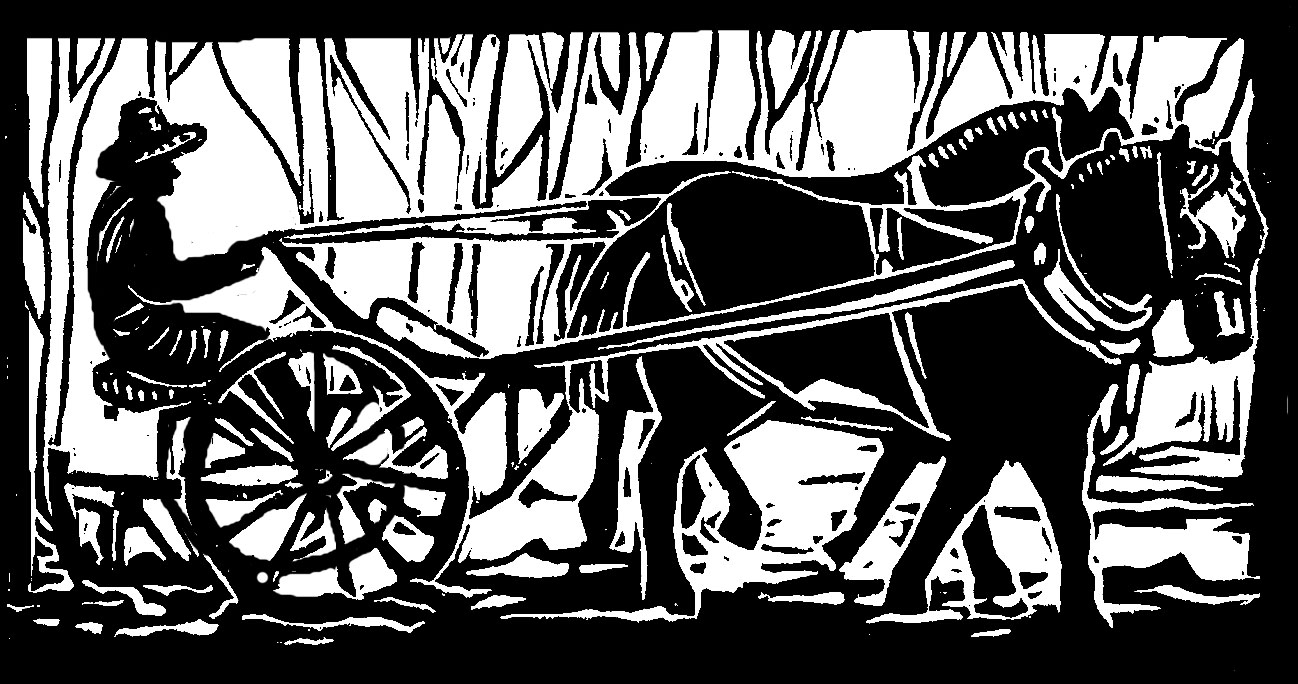The snow is falling peacefully this morning on our fields and our woodshed and our house and our garden and our barn, and on our four draft horses in their winter paddock.
The snowflakes are like stars on the horses' winter coats, two red-brown-gold, one black, and our new horse, Clyde, bringing the herd together with his red-brown coat and black points. Of course, our black horse, Ben, may beg to differ on this peaceful bringing together point.
Back in the old days, as in last winter, when we had just three horses, Ben was the “boss hoss,” and that suited him swell. He was the first to the water, first to the feed, and the one who always started the game of ring around the hay piles, as he shuffled the other two horses from one hay pile to the next, sampling them all, and declaring his preference, or at least declaring his ability to shuffle the other horses around.
Now Clyde is the boss hoss, and he is a much less bossy boss. Yes, he's the one that stands at the barn door now, waiting for the first load of hay to come out. But even when he is all riled up, it's never with Benny's fire and pinned ears and mad dashes at other horses.
Clyde is more of a dancing boss, shaking his head and body all over in a lively trot, while the others slide out of the way. It's as if he's just expanding his presence, saying “Hey, here I am, don't forget,” rather than giving out orders. The dancing has the same effect as the dashes, but it's a lot more peaceful, in our view.
Whether fiery or peaceful, the horse relationships are more complex than we farmers think, as we hover at the edges of the horse world, and at the edges of our own understanding of the horse world. We know that the hierarchy in horses isn't a strict one, and that it depends on many factors, including scarcity and abundance of food and water and space, and various combinations of mares and geldings, and on which horses are related and which horses are pals.
Now we have, for the first time, one mare and three geldings, only two of which are related, which has led to this: Clyde, who can push Ben and Moon away; Ben, who can push Molly and Moon away; and Molly, who can push Clyde and Moon away. If you're following all that, you will see how strange it appears to us: Clyde over Ben, and Ben over Molly, and Molly over Clyde. Plus there's Moon, who mostly gets to eat with everybody, even if he doesn't get to push anyone else away.
With all this relationship shifting, we have had to figure out the best way to feed our horses little treats, which can sometimes cause a big uproar in the barnyard. We've tried various techniques, and sometimes it is all a little too close for comfort, with two or more big horses squealing or threatening each other, and the puny human in the middle with the apple core.
Of course, the humans have to function as boss hoses all the time, in order to even work safely with such big animals. But we are boss hosses more like Clyde, just expanding our presences if necessary, or, if we can, figuring out less contentious ways to bring treats without getting accidentally run over.
Our latest experiment was when we brought the horses holiday apples and carrots. I had two apples for each horse, plus a little pile of carrots divided up. I planned it all out. There were three people, and four horses, two of which always eat happily together. Thus one farmer went straight to Clyde, one went straight to Ben, and the third to Molly and Moon, with no treat rumors spreading ahead of time.
Oh, how peaceful it was! No racing, no squealing, no threats of hooves or teeth. It also helped considerably that it was one of those quiet mornings like today, since a windy high-pressure day or a storm will cause the herd to whirl and kick and squeal and feint and race just for the whoop of it all.
Sometimes a whoop is fun and exciting. Sometimes it's not. Sometimes it's nice to have a rest from whooping, to watch the snow fall on the fields, to feel a horse's soft lips on your palm, to savor the connection between the apple, grown here on the farm, the horses, living and working here on the farm, and the farmers, right in the middle, and held up by it all. Given, of course, that we're not being run over by it all.
Originally published in the Monadnock Shopper News, Feb 10 - Feb 16, 2021
